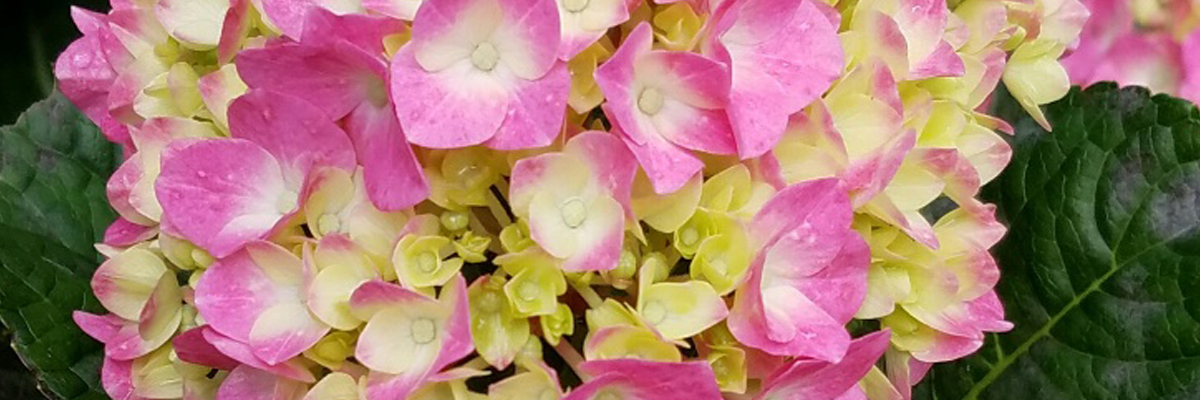
Overwintering Hydrangeas
By Kerry Ann Mendez
We often get questions about over-wintering hydrangeas this time of year. Should they be pruned? Fertilized? Wrapped?
The answers to some of these questions depends on the species of hydrangea. The five most commonly sold species in the Northeast are: arborescens (Smooth Hydrangea), paniculata (Panicle Hydrangea), macrophylla (Bigleaf Hydrangea), serrata (Mountain Hydrangea) and quercifolia (Oakleaf Hydrangea).
Pruning
Smooth and Panicle Hydrangeas can be pruned in late fall, winter or early spring, before new foliage has flushed out. Oakleaf Hydrangea should be pruned after flowering in mid to late summer and before new buds start forming on old wood for next year's floral display. The new approach concerning Bigleaf and Mountain Hydrangeas is to purchase varieties that mature to the height desired and do little pruning at all, other than to cut dead stems back to live wood in spring. In summary, four out of the five above-mentioned Hydrangeas are pruned in spring and not the fall!
Fertilizing
Should you fertilize hydrangeas in the fall? No. Spring is the time to jump-start growth.
Wrapping
Would wrapping hydrangeas improve flowering the following year? Possibly, but only on those types that flower on old wood (the previous year's growth) such as Bigleaf, Mountain and Oakleaf Hydrangeas. Mountain Hydrangeas are hardier and typically don't require winter "blankies" to bloom well. Oakleaf Hydrangeas usually bloom reliably in Zones 5 or warmer as long as they receive 4 or more hours of sunlight and are out of the path of winter winds.
It's the Bigleaf varieties that cause the most angst. This is because the already formed flower buds are prone to freezing, even though the leafy shrub survives. To protect vulnerable buds, wrap the shrub with burlap, or surround it with chicken wire and gently pack raked leaves within the interior. Remove the protection later in spring, after danger of hard frosts.
Finally, remain optimistic! Gardeners are wonderfully resilient - even if some hydrangeas are not.